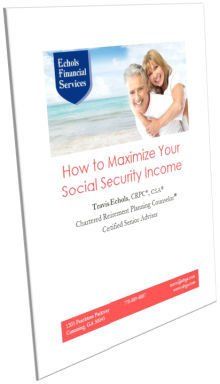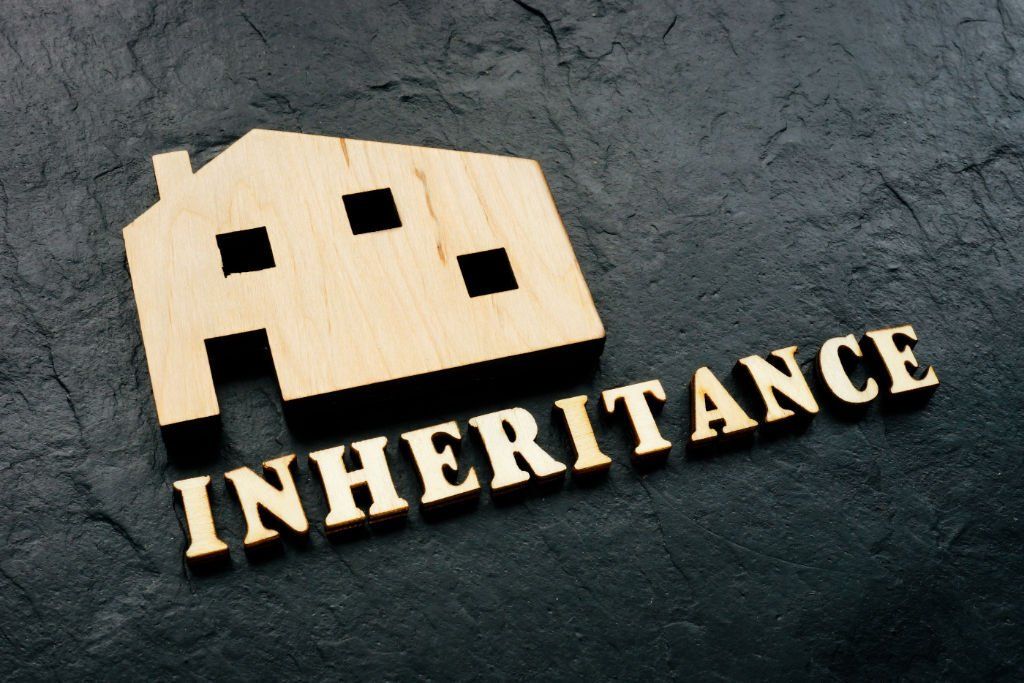What Happens to Your Social Security When You Die?

If you are like most Americans, when you retire and stop earning income, Social Security will be one of your most valuable assets. There are many little-known facets of how Social Security works, how it applies to you, and questions regarding how to best use your Social Security benefits. Often the various questions swirling around the idea of Social Security can feel overwhelming. As you plan for your own, your spouse’s, and your family’s protection as you age, it is important to know the available Social Security benefits that might be available to you and your family. It is also important to know what becomes of those benefits when you die. To help you, I am going to discuss three commonly asked questions. Sign up to receive my free monthly email articles on retirement planning--no cost, no obligation . |
What exactly are survivor benefits and what do I need to know about them?
If you are in the workforce and paying Social Security payroll taxes, those taxes go towards survivor benefits which your spouse, children, and parents may be eligible to receive once you die.
The exact benefit amount survivors receive depends on the worker's average lifetime earnings and having the requisite number of “credits”. The exact number of credits needed to qualify depends on your age when you die.
You might also receive survivor benefits when a family member dies. Depending upon whether the deceased family member worked long enough to qualify for survivor benefits, you and other family members could receive a substantial amount.
Potential survivor beneficiaries include minor and disabled children, stepchildren, and grandchildren (they must be under 18 years old and unmarried), parents (must be at least 62 years old and financially dependent on the late child), and ex-spouses (if the marriage lasted more than 10 years and divorced for 2 years).
To apply for benefits, call 1-800-772-1213 to schedule a phone appointment with a claims administrator. Documents required to apply for various types of benefits vary according to which kind of benefits you are applying for.
Click here on the Social Security website for more information on survivor benefits.

Can family members claim Social Security benefits on behalf of someone who died before they started collecting benefits?
In this situation, survivors can collect a full benefit from the deceased worker if they wait until full retirement age. The benefit amount will be reduced if the survivor claims the benefit before reaching their own full retirement age.
This benefit amount will be based on whatever the deceased workers' full benefit is calculated to have been in the month of passing.
What will happen to my deceased spouse's benefits if I am collecting Social Security benefits of my own?
Spousal benefits end when an individual passes away and survivor benefits start. If you have been receiving benefits for your spouse’s work, Social Security will change your benefits over to survivor benefits once the death of the spouse has been reported.
You have the option to stop this switch by contacting the Social Security administration. If you are under full retirement age, the option to stop the switch enables you to wait until full retirement age to start the survivor benefit, eliminating a reduction in survivor benefits for taking them early.
If you’re also getting benefits based on your own work, Social Security will see whether or not you can receive more money as a widow/widower; if this is the case, Social Security will begin sending you a combination of benefits that is the highest amount possible.
You may also stop the switch to survivors’ benefits and start them later when
you become full retirement age. You will
continue to receive benefits from you own work record.
If you are not receiving
spousal benefits in the month of passing, an application is required to switch
your Social Security payments over to survivor benefits.
You may be required to provide proof of a spouse's passing and a marriage
certificate.

Key facts to keep in mind about Social Security Survivor benefits
If you
have already started collecting Social Security benefits on your work record, you will be
able to get survivor benefits only if they exceed your own contributions.
Social Security pays the highest of the two benefit amounts.
Keep this in mind when planning. If you and your spouse are both collecting Social Security, when one of you dies, the surviving spouse will get the higher of the two checks going forward.
You will no longer be receiving two Social Security checks.
That can be a significant income reduction during a time when the widowed spouse will likely pay higher taxes by filing single rather than married filing jointly.
For a couple who is planning ahead for this potential scenario, the higher income earner will often delay claiming Social Security to get a higher amount later. This will benefit the surviving spouse with a higher Social Security amount for life no matter which spouse it is.
The decision to delay the higher income earner's Social Security can often justify the lower income earner claiming early, since this often has little impact on lifetime joint benefits and no impact on survivor benefits.
Widowed
and former spouses who remarry before turning 60 (or 50 if disabled) cannot
collect survivor benefits.
Eligibility to receive the former spouse’s benefits will resume if the latter
marriage ends.
Besides
these stipulations, there is no time limit on survivor benefits.

Help when deciding on Social Security
As with so many federal programs, the rules and qualifications for Social Security can be complicated. Claiming mistakes can cost you tens of thousands of dollars in lifetime benefits. Professional guidance can greatly assist you in making the best decision about when to claim Social Security benefits.
For more in-depth answers to your questions regarding survivor’s benefits, check out this document provided by the Social Security Administration.
Click here to learn more about our Social Security planning services.
Click here to download our free PDF Book ,"How to Maximize Your Social Security Payments".
Click here to download our free PDF Book, "Estate Planning Survivor Checklist" for anyone you know who has recently lost a loved one and needs to help or be aware of their estate planning.


Travis Echols , CRPC®, CSA
Receive free Social Security Guide by email




Investment Advisory Services offered through JT Stratford, LLC. JT Stratford, LLC and Echols Financial Services, LLC are separate entities.











